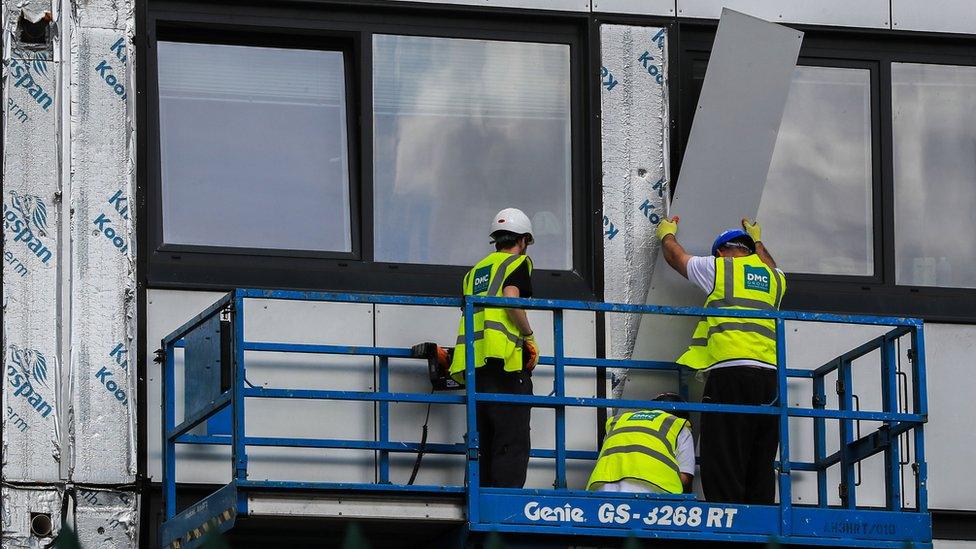Residents 'living like animals' as cladding is replaced
- Published
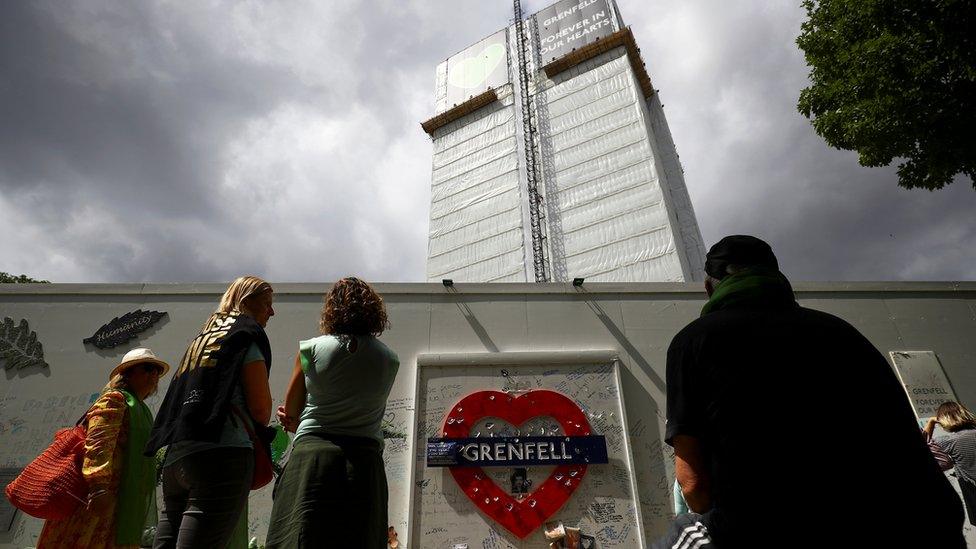
Dangerous cladding on Grenfell Tower in London led to 72 deaths
Residents of high rise blocks covered in dangerous cladding have been condemned to "live like animals" during replacement works, MPs have been told.
Up to five million people live in blocks with cladding similar to that which caused the Grenfell disaster.
But measures to strip all unsafe cladding have left leaseholders living without light or ventilation, in some cases for more than two years.
The housing minister told MPs he would look at new guidelines for builders.
More than 70 people died in the 2017 Grenfell fire, leading to the government setting up the £5.1bn Building Safety Fund to remove dangerous cladding from tower blocks across the UK.
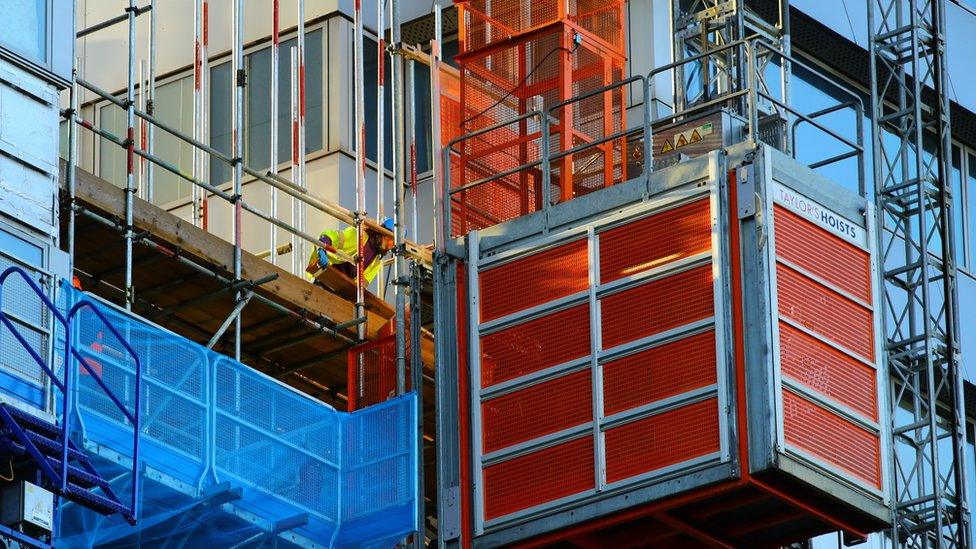
Workers remove the cladding from the facade of a block of flats in north London
But some residents have been left in what Conservative MP Stephen McPartland called "a living hell" by cladding remediation works, which involve covering the exterior of buildings in a plastic wrap.
Those in Mandale House in Sheffield have been told their balconies and windows will be blocked off for at least two-and-a-half years.
Sheffield Central MP Paul Blomfield described them as being "condemned to live in a space with no natural light and no ventilation".
The Labour MP said: "Effectively they're being asked to pay substantial money to repair faults they have no responsibility for, in order to enjoy a substantial reduction in the quality of their lives, over a very long period of time. It's obscene, what's happening to them."
The MPs were taking part in a debate in Westminster Hall, an annexe of the House of Commons chamber.
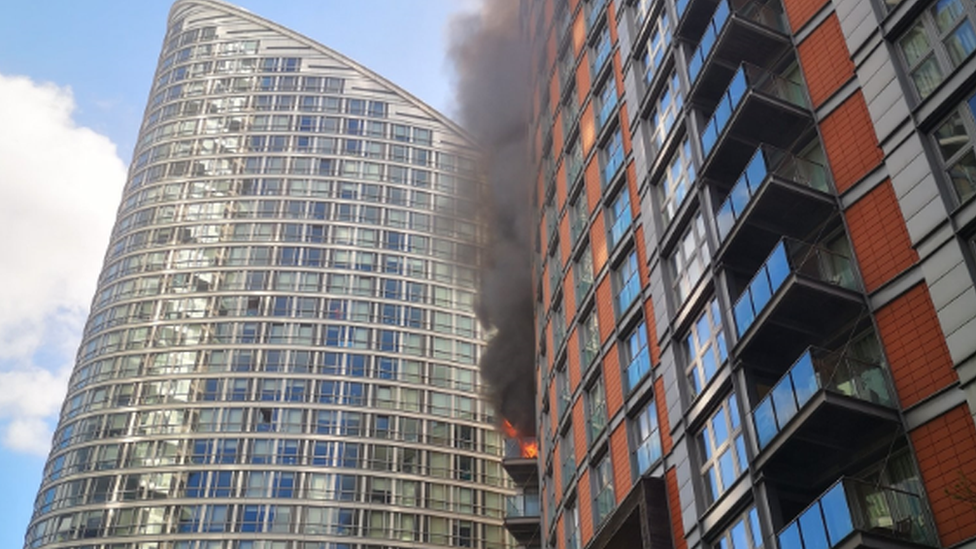
More than 100 firefighters were needed to tackle the east London blaze at New Providence Wharf last year
People living in the 19-storey New Providence Wharf in east London, had already gone through a fire in May last year, which Stevenage MP Mr McPartland said had left one mother "sitting on the floor because she didn't know which child she had to leave behind".
"The neighbours came and picked the other children up and got them out of the smoke," he said.
"Everything failed, the smoke alarms failed, the fire doors failed - they had all the kit but none of it worked."
These Canary Wharf residents were also now living in a shrink-wrapped building that, following last month's storms now "looks like shredded toilet paper", he said, and have spent the last 12 months "living in darkness".
"You wouldn't be able to treat animals like that," the Conservative MP said. "It's a living hell for a number of people already close to breaking point."
Mr McPartland suggested the government should use compulsory purchase orders (CPOs) to buy out leaseholders, demolish the buildings and build new affordable homes through housing associations.
In Ipswich, residents of St Francis Tower expected to be living with their windows covered for 18 months, said local MP Tom Hunt, who said the conditions were so bad "I would feel guilty about an animal living [there], never mind my constituents".
He said: "There's virtually no natural light at all in these buildings and bars across the windows meaning that even getting fresh air was difficult."
The Conservative MP called for new laws to prevent buildings being shrink-wrapped and relocation funds so residents could move out during building works.
Housing Minister Stuart Andrew agreed such conditions were "unacceptable" and pledged to "look at" different types of wrapping.
He also said he would consider the MPs' calls for a new code of conduct for builders to take the wellbeing of residents into account when replacing cladding.
- Published28 January 2022
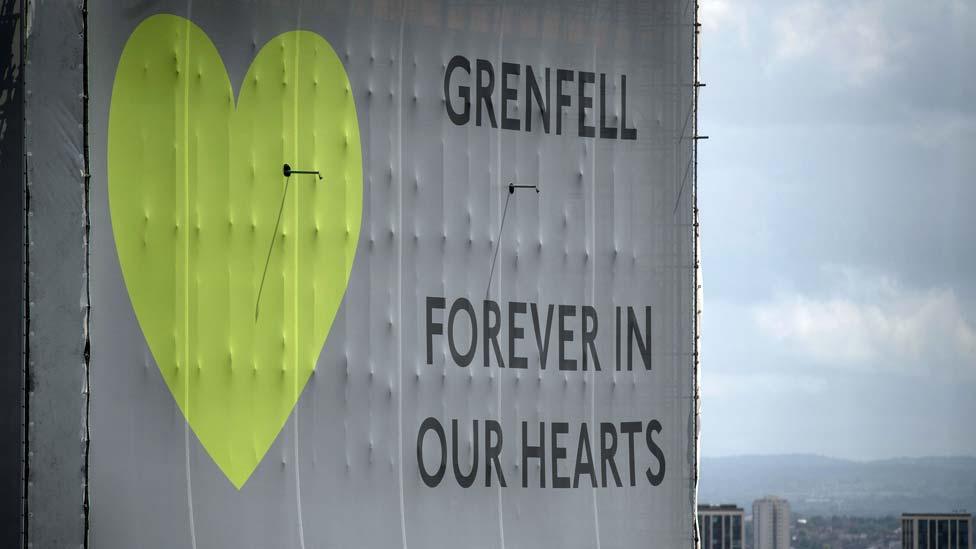
- Published20 January 2022

- Published7 February 2022
